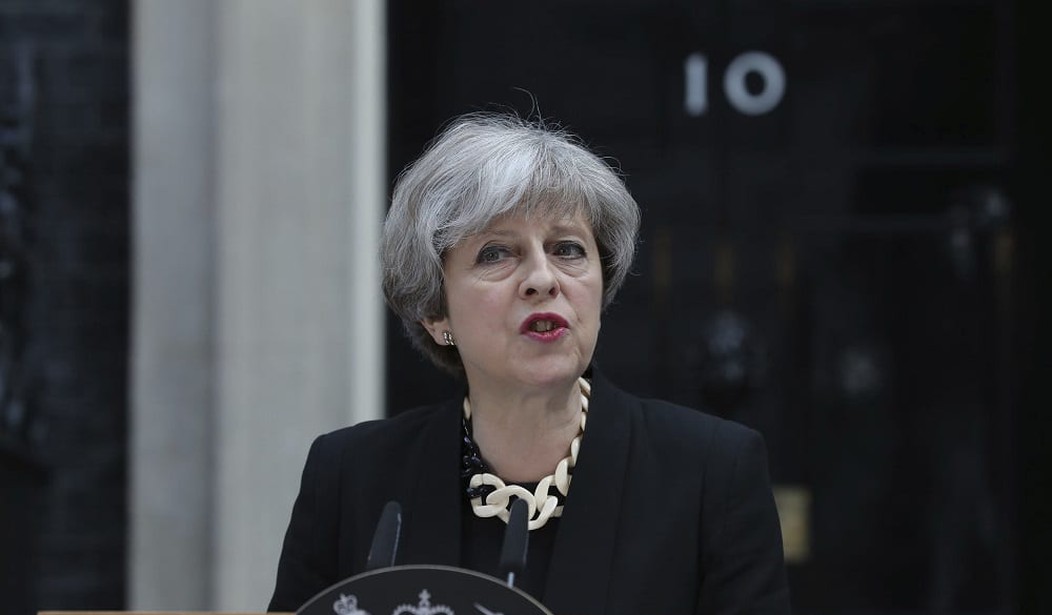British Prime Minister Theresa May has announced her administration has created a new position designed to combat the plague of “loneliness” sweeping across Great Britain. The new “Minister of Loneliness” will specifically deal with “the sad reality of modern life”, according to Prime Minister May.
That reality was illuminated by a British study last year that found nearly 9 million people identifying themselves as often or always lonely. With some health experts suggesting chronic loneliness can be as harmful as smoking 15 cigarettes a day, May’s government identifies it a public health crisis.
“I want to confront this challenge for our society and for all of us to take action to address the loneliness endured by the elderly, by carers, by those who have lost loved ones — people who have no one to talk to or share their thoughts and experiences with,” May said on Wednesday before appointing the minister Tracey Crouch, according to the New York Times.
May’s concern is rightly placed. Certainly we can’t deny that western society has left behind vulnerable groups like the elderly in our never-ending, botox-fueled, social media driven quest for youth and relevance. Western individualism, the internet and advancements in transportation have made the world a much smaller place than it used to be. Families are no longer confined to their region of origin and extended families living under one roof are less and less common.
However, the dire need for such a position underscores the root of a problem that cannot be addressed by yet another government program. No one stopped to ask what would happen when we jettisoned traditional values for progressivism. It was a nice thought to believe the government could relieve the “burden” of caring for the those in need from individuals and families; but when we are no longer required to bear that burden, what does it do to our relationships?
Suddenly western society went from an environment where families and communities bore the brunt of caring for the needy to one where the government stepped in for them. It’s all well and good that Janie gets to go to college and live in a posh one bedroom in the city and drive the car her parents always wished they had, but what is Janie being robbed of by not having the responsibility to care for her aging and sick grandmother? What is her grandmother being robbed of by not having to rely on her family for her day to day needs?
Churches and other faith communities used to be the main organizations to fill in the gaps left by failing family. They still do, but the atmosphere has changed and many faith organizations are no longer welcome in the sphere of public charity, particular in the UK. We’ve forced faith and religious values further and further to the fringes while we expand government aid exponentially each year. But a government entity is just a faceless bureaucracy and doesn’t have the same connections in a community that a church or synagogue might have. That bureaucracy doesn’t have a day-to-day interaction with the realities of life in any given community. The names of their rolls are just stand-ins for dollar signs.
With the expansion of Big Government has come the expansion of Big Brother. We’re told “if you see something, say something” but if that “something” involves a minority group or person then we risk being ostracized, fined or worse. A busybody neighbor who doesn’t think your 10-year-old should be walking home from school alone could make one call and have you tied up in with CPS for years. For many it is easier to live life isolated from neighbors rather than risk being misunderstood.
As we’ve changed the definition of “family” we’ve also changed the defined role of family.
As we’ve celebrated the rise of the internet, we’ve also changed how we interact with each other. The anonymity provided by our computer screens gives us the incentive to say harsh things to others we would never say to them in person. It has also given us a false sense of relationship with others, requiring no sacrifice on our part to nourish genuine friendship in service to another.
Since the 1960s (at least) we’ve been told that the traditions of our parents and grandparents -and even the traditions of newer immigrants from more socially conservative societies- are out of step with the pace of progress and modernity. We’ve been told we’d all just be happier if the government paid for our healthcare, our schooling, our meals; if the government could just force society to accept our personal choices as right; if the government could provide for our retirement and relieve people from the burden of preparing for their own futures.
Well, in the UK they have all those things and yet their people are lonelier than ever. Perhaps instead of yet another government intervention, they might consider looking at past decades when life was significantly less regulated…and act accordingly.













Join the conversation as a VIP Member